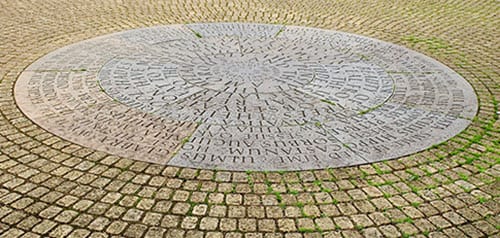Translation in History lecture series: Roman Jakobson and the translation of poetic language
By ucyow3c, on 11 January 2016
![]() Written by Tania Castro Rodea (UCL Translation Studies)
Written by Tania Castro Rodea (UCL Translation Studies)

On Thursday 26 November, we welcomed Professor Jean Boase-Beier (University of East Anglia) to UCL as part of the Translation in History lecture series. Her talk, ‘Roman Jakobson and the Translation of Poetic Language’, focused on the key ideas of this influential linguist and some of their implications for translation.
Professor Boase-Beier emphasised that Jakobson did not propose any particular way of translating; he did not give a set of instructions. But what he did say is of use because it can help us “think around translation, think about practice, and what consequences that has.” Boase-Beier also pointed out that, among Jakobson’s articles that are important for translation, some do not even mention translation, and so it is advisable to be aware of the wider context of his thinking, to know how he developed his ideas, particularly if we want to understand what already well-known quotes really mean.
In this regard, Boase-Beier posits that many people do not understand the most famous statement of Jakobson, that “the poetic function projects the principle of equivalence from the axis of selection into the axis of combination.” To explain this statement, she used an example where the words cat, kitten and feline were offered as options. When we select, she said, we choose from words that designate similar things. But once the word ‘cat’ is selected, this is transferred to the axis of combination, where the choice is not based on things, but on the word selected and its similarities with other words. We say “the cat sat on the mat,” not because the cat has similarities with the mat, but because of the similarities between the words: they rhyme.
 Close
Close




